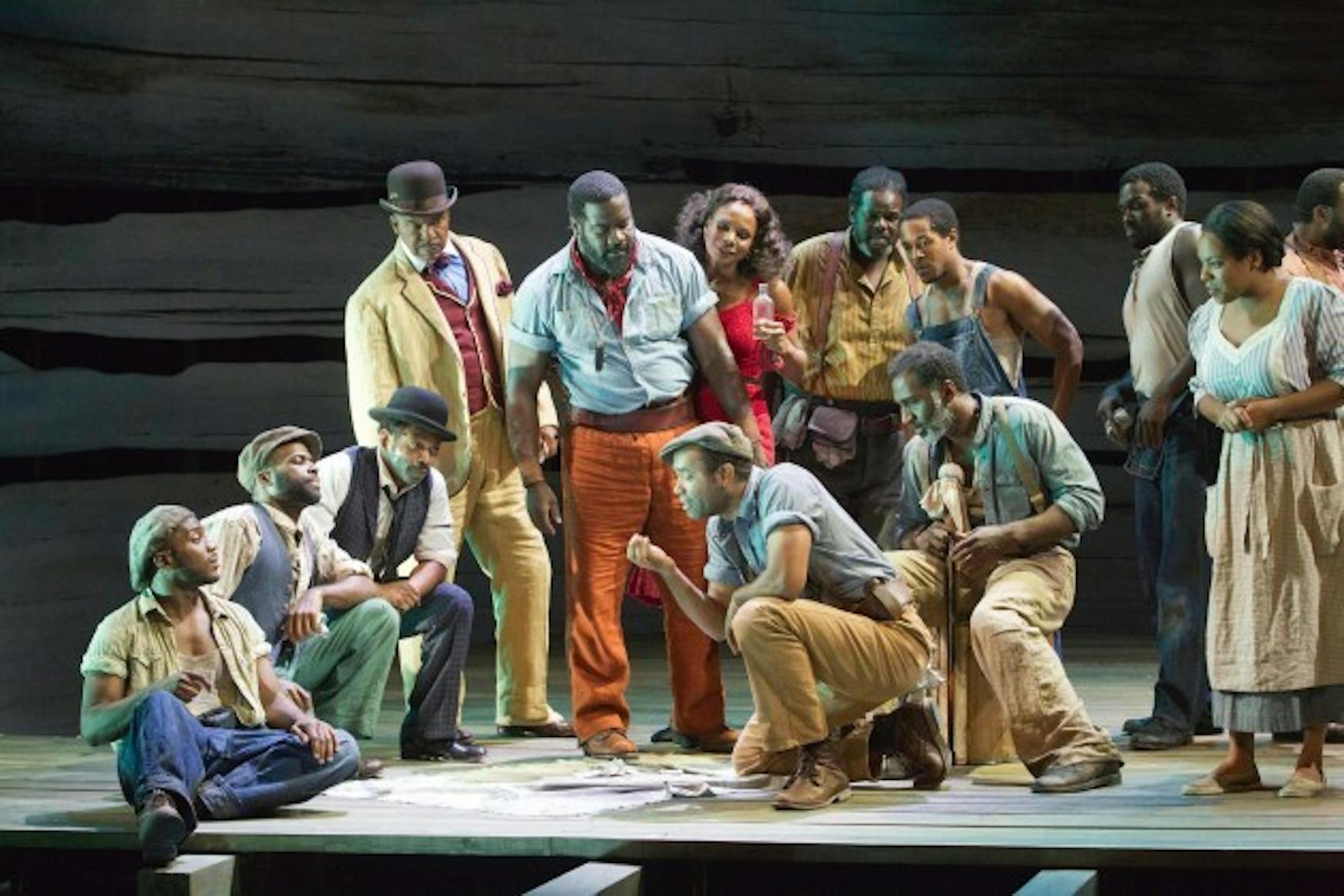Revamped 'Porgy' is a modern success
Adaptation is a tricky thing. Any time a theater production is revived or re-imagined, it invites comparison to the original, as well as criticism should the new incarnation not do justice to the original. The American Repertory Theater's recent production of Porgy and Bess—or, as the theater billed it, The Gershwins' Porgy and Bess—received more than its fair share of scrutiny. New York Times theater critic Ben Brantley came to Cambridge to review the show, a rare occurrence for a regional production. Before Porgy and Bess even opened, noted composer Stephen Sondheim chastised its creative team in an open letter published in the Times.
Auteur-director Diane Paulus shifted the piece from a classic American folk opera to a streamlined piece of musical theater, and The Gershwins' Porgy and Bess was water-cooler conversation before most Boston audiences even had the chance to experience it for themselves.
If only for its stellar leads, this adaptation of Porgy and Bess was an experience. Four-time Tony Award winner Audra McDonald was the biggest star-draw to the show, and she could be well on her way to earning Tony number five with her character, Bess. McDonald embodied Bess completely, giving her an initially bristling edge as the lady in red, but slowly revealing the vulnerable, world-weary woman beneath. Her voice is incomparable, and her majestic tone and emotional nuance made for a riveting performance.
As the crippled Porgy, a grey-bearded Norm Lewis held his own opposite McDonald; indeed, his performance was the beating heart of the production. His Porgy was genuine, brimming with resonance and earnest strength in "Bess, You Is My Woman Now," a breathtaking duet with McDonald that stopped the show. He held quiet command of the stage, captivating the audience simply by dragging his bum leg and—dare I say it—stealing my heart before McDonald could grab hold of it.
The entire ensemble sang well, filling out the Catfish Row community with individualized characters who came alive in a craps game or a picnic day. David Alan Grier offered a slimy, snazzy "Sportin' Life," while Phillip Boykin played the brutal Crown as an archetypal antagonist. Boykin was the focal point of the most visually stunning moment in the show as he returned to Catfish Row in the middle of a hurricane, appearing in the pouring rain out of Riccardo Hernandez's simple but versatile striated set. A large wall, reminiscent of the peeling hull of a boat, curved across the stage, capturing the actors' shadows as they danced with period-appropriate choreography from Ronald K. Brown. The entire effect was an abstraction of a 1930s South Carolina shantytown, grounding the production while still allowing the actors to bring the setting to life.
Casting and production values aside, however, the ART's The Gershwins' Porgy and Bess deserved the controversial dialogue it provoked. Paulus and her creative team—Suzan-Lori Parks and Diedre L. Murray, adapting the book and score, respectively—ensured that their production would stand on its own, but they had no qualms about changing the original piece. Many lines that had been sung became straight dialogue, and Parks added additional dialogue to give some characters more back story. Murray changed the key on several numbers to make them more accessible in today's musical theater appeal. The iconic "Summertime," usually a soaring soprano lullaby which opens the show, was delivered down an octave by a jazzy alto (Nikki Renee Daniels) who added a slight R&B-inspired riff to the last note. Daniels sang beautifully, but she came across like a cabaret singer opening her act with a classic Gershwin cover rather than a mother rocking her baby to sleep along southern Catfish Row.
I grew up listening to the opera, so despite my praise for McDonald and Lewis, much of this production had a similar feel to me: It "fixed" something that I didn't think was broken. But I saw this show next to people who were experiencing the story for the first time, and their connection to the piece was honest and undeniable. Had I brought no prior knowledge to the theater, maybe I would have felt the same way.
Paulus displayed stunning audacity in attempting to reinvent Porgy and Bess as musical theater, but I don't think she succeeded. Porgy and Bess, for me, will always be the original Gershwin opera. Diane Paulus' The Gershwins' Porgy and Bess, however, is exactly how it sounds: Paulus' own interpretation to introduce modern audiences to this classic show. In that, I think she succeeds.
The Gershwins' Porgy and Bess will transfer to Broadway this winter, beginning previews Dec. 17, followed by an official opening Jan. 12, 2012.



Please note All comments are eligible for publication in The Justice.